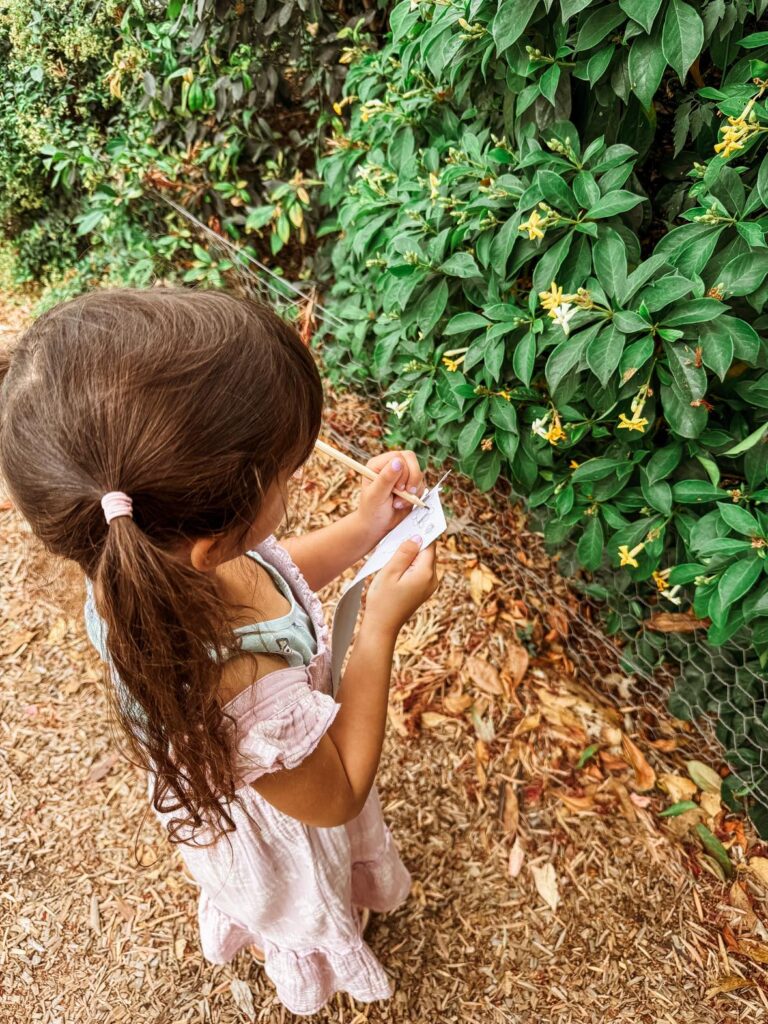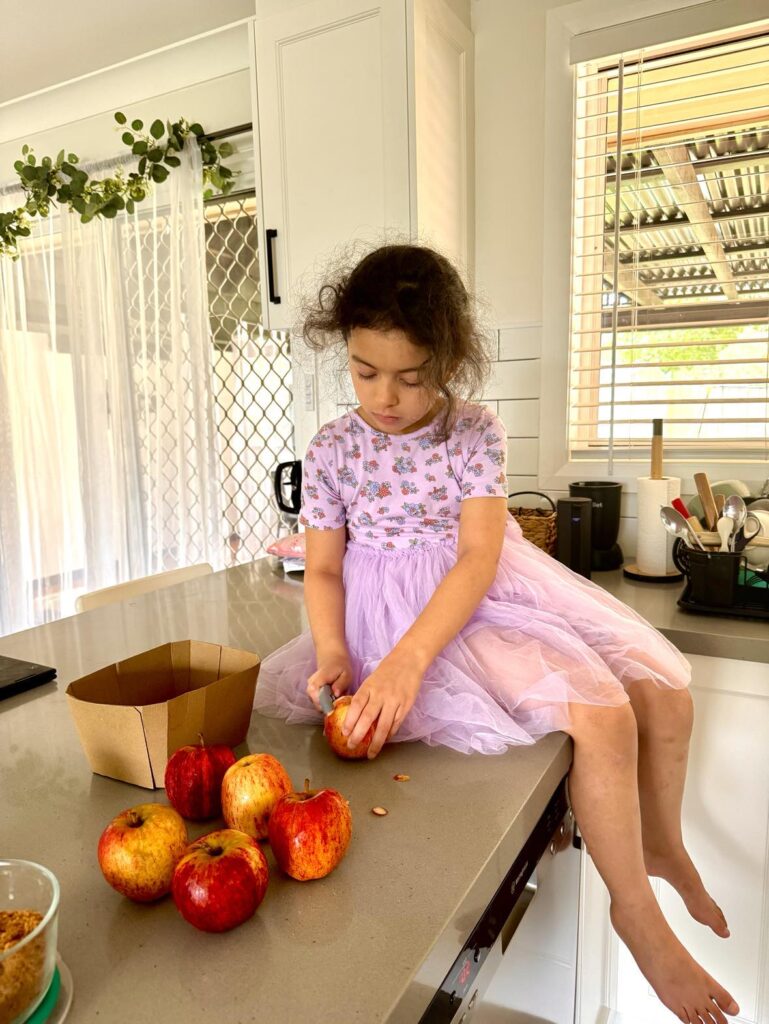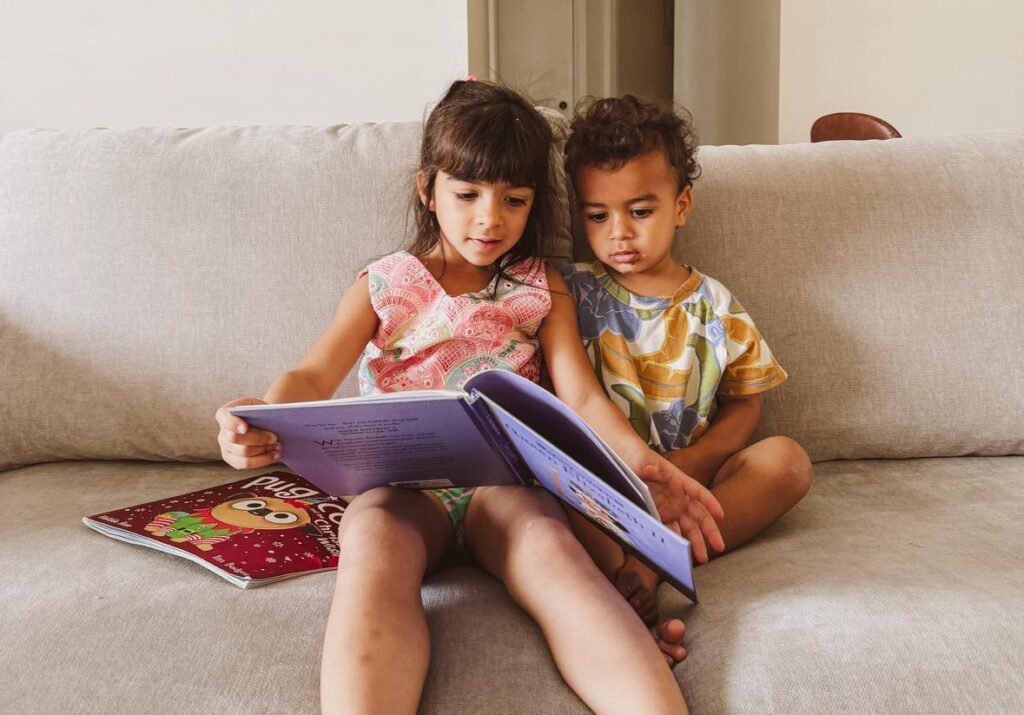As a homeschooling mother of four, I have recently began learning about Charlotte Mason’s education philosophy. I love her ideas, her approach toward children and parents and education in general. Here I will share as best as I can, Charlotte Mason for beginners.

For reference, I have a soon to be 7 year old, soon to be 5 year old, 2 year old and almost 1 month old baby.
Last year, when we first began homeschooling my eldest daughter, we followed a beautiful curriculum inspired by Charlotte Mason. I loved how quick the lessons were, how simple and repetitive they were and how much they emphasised art, poetry and music (all things I personally love).
Growing up, my mother loved literature and reading, so much so that she became an English Teacher. My sister and I learned to appreciate the art of literature. My dad, on the other hand, was (and still is) an exceptional musician, so we grew up listening to a variation of music and became musicians ourselves. I loved that through my parents, I was able to appreciate literature and music from a young age.
So, when I stumbled upon Charlotte Mason’s work (second-hand resources at first), I instantly fell in love with her education philosophy.
Last year, in our first year of homeschooling, we loosely followed her philosophy without even realising. Then, over the last few weeks, I read Leah Boden’s Modern Miss Mason and loved the way she admired Charlotte Mason’s philosophy and was able to incorporate so much of her work into her family’s own homeschooling journey.
Rather than bore you with all the things that Mason taught – because I myself am only starting to get familiar with it – I thought I would share some simple Charlotte Mason practices and beliefs to get started.
There are plenty of other resources, including Mason’s own work, that you can read for an in-depth analysis of her philosophy, so this is just scraping the surface of the Charlotte Mason philosophy.
What I will cover
- Some ideas Mason believed about children, parents and education
- Some ways you can incorporate her philosophy into your homeschool days

Some ideas Mason believed about children, parents and education
Charlotte Mason believed that all children are born humans. In her mind, this meant that they were not just helpless little babies with no personality or character. Children were born with everything they would grow up to desire and to be.
In Modern Miss Mason, Boden adds to the philosophy with this: “every child comes with a preloaded software that cannot be ignored or easily overridden.”
This means that as parents and educators, it is not our job to tell them who to become, but to draw out and nurture the gifts, personalities, abilities and character traits they already have inside of them.
I love this, because it places a huge emphasis on how special and valuable children are. They are to be seen, heard and appreciated for who they are and for who they will become.
Mason also believed that there are three educational instruments, ‘the atmosphere of environment, the discipline of habit and the presentation of living ideas.’ This means that she believed education lies on three principles, education as an atmosphere, discipline and a life.
Atmosphere can often be confused with the word ‘environment’, however, it is more connected to the culture of your family and home, something that is caught rather than taught. How you communicate to each other, the rhythms you establish as a family, how you cultivate joy and peace in your home etc.
Discipline is about the habits that you are training your children to learn. These relate to character building. I love that education is more than just what children learn, but more so about who they become. I fully believe that the habits we instill into our children, whether positive or negative, develop their character more than anything. Boden talks about habits of the hand (cleaning after yourself, household chores, responsible for one’s own belongings) and habits of the heart (attitudes, values and relational connections) as habits we instill into our children.
Life is about connecting our learning to living ideas, books and things all around us. It does not mean everything is educational, but rather, learning as organic, alive and something that can be multiplied. Mason believed that great thinkers must influence our children to think for themselves. She was passionate about authors who were passionate about their writing and could make their books come alive. This in turn, makes the child come alive.
I’ve seen this idea represented in my own children. The first chapter book I read to my girls was the Magic Faraway Tree. Over one year, we read three of Enid Blyton’s books of the Magic Faraway Tree series. My girls wanted to continue reading more chapters, even if it was way past their bedtime. They were engaged with the storyline, felt connected to the characters and loved the pictures Blyton painted with her writing.
Another principle that Mason believed was the art of capturing a child’s attention. Mason believed that lessons should be sharp and short, so not to bore children, but rather to keep them engaged.
Boden states this in Modern Miss Mason, “where your attention lies, your affections will follow.” I love this because it is so true.
I’m sure there were hundreds of lessons in school, where, because the lesson went on for too long, I was no longer engaged. I specifically remember my Geography class in year 8. Most lessons, the teacher would have us copy large paragraphs from textbooks into our workbooks and that was what we did for the entire lesson. Do I remember what I learnt in Geography that year? Absolutely not. I was not engaged and I had zoned out the minute I opened up my textbook.
I love that Mason valued capturing a child’s attention. It not only makes learning engaging, but values the child’s time, as well as our own.
And lastly (for the sake of this blog at least), I loved how much Charlotte valued mothers. One of Mason’s most quoted phrases is, “let the mother go out to play!”
Mason believed that a refreshed, revitalised mother was able to educate and meet the needs of her children in an optimal way. She believed in parents so much that she created a programme purely for mothers to learn not just how to educate their children, but how to keep themselves in good health and spirit. Mason believed that when a mother takes the time to ‘play’ and do something sou-filling for herself, then her household would be much happier.
I could not agree more, because I know how true this is for myself and my family. If we are at home educating, nurturing and taking care of our children all day, then taking care of ourselves, no matter how little time we have, must become priority if we truly want to embrace the Charlotte Mason philosophy. And while she worked closely with mothers, this belief for play applies to dads, too!
How you can incorporate Mason’s philosophy into your homeschooling
Charlotte Mason emphasised the importance of children being out and admiring nature. Studying nature can be as simple as using a piece of paper and pencil and drawing whatever catches your eye outside. There is something so profoundly satisfying about being outside and taking notice of what surrounds you. For children to have that appreciation from a young age is such a gift.
As mentioned, Mason believed in keeping lessons short, to engage the child. We keep our lessons brief- about 15-20 minutes long with lots of breaks in between. Make sure your child is fed and not hungry and has had some time to play and get their wriggles out.
Mason believed in the importance of narration. The art of retelling what you have just learned helps to transfer your knowledge from your working memory to your long term memory. It also helps to hear what your child’s interpretation is of what they have just learned. Narration can be incorporated into any lesson, particularly in literacy, history and even Maths.
This may just be the most important method Mason taught parents and educators when it comes to educating their children, and that is, to nurture relationships. Mason believed that your child can’t learn from you if she can’t trust you. That is why building and nurturing your relationship with your children is of utmost importance.
Most mornings, I try to connect with my children before we begin our learning. Whether that be through reading the bible or having organic conversations with them. When I can, I make sure to sit with them over breakfast and just be with them, even if it’s for five minutes.
Looking back, my favourite teachers were the ones who I knew cared for me and took interest in me. We gravitate to people we know we can trust. And trust breeds an openness to learn.

Like I mentioned, I have only scraped the surface of Charlotte Mason’s education philosophy. But I hope that this gives you an idea of what she valued as an Educator and how you can instill some of those values in your own home.
I love that you can adapt her principles in the way that you think will fit your family. It is certainly not rigid, but rather, a way of life to foster and grow into.
More on the blog
The birth story of my fourth baby
Leave a Reply